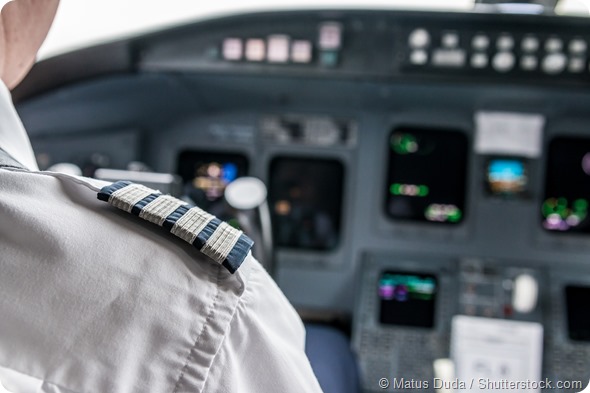Hundreds of commercial airline pilots may be clinically depressed and having to manage depressive symptoms while they are flying, according to a survey of almost 1,850 pilots.

According to the study authors, these pilots may not be receiving treatment due to a fear that reporting their depression will have a negative impact on their career.
The study was based on an anonymous web-based survey administered between April and December 2015 and is the first to describe mental health amongst pilots outside of data gathered from health exams, investigations into aircraft accidents and identifiable self-reports.
When those are the sources of information, pilots are less likely to report any symptoms of depression, say senior author Joseph Allen (Harvard T.H. Chan School of Public Health) and colleagues.
There is a veil of secrecy around mental health issues in the cockpit. By using an anonymous survey, we were able to guard against people’s fears of reporting due to stigma and job discrimination”
Joseph Allen, Harvard T.H. Chan School of Public Health
The survey covered fifty countries and used standardized questions that doctors use to diagnose depression. The questions were taken from the Job Content Questionnaire (JCQ) and the U.S. Centers for Disease Control and Prevention’s National Health and Nutrition Examination Survey (NHANES). They were mixed in such a way that the focus did not seem to be on mental health, in order to minimize the likelihood of bias in responses.
As reported in Environmental Health, almost 3,500 pilots responded to the survey. Of those, 1,848 answered all of the mental health questions. Among that group, 233 (12.6%) met criteria for likely depression and 75 (4.1%) said they had had suicidal thoughts within the previous two weeks. Furthermore, 1,430 pilots said they had flown in the previous week at the time of the survey and of those, 193 (13.5%) met the diagnostic criteria for depression.
More males than females said they experienced a loss of interest, feelings of failure and difficulty concentrating “nearly every day.” Females were more likely to have experienced at least one day of poor mental health in the last month and were also more likely to have a depression diagnosis.
The findings come a year and a half after a Germanwings co-pilot who had depression intentionally crashed into the French Alps, an event that brought the topic of depression to the forefront in aviation. This study provides further information on the subject of mental health amongst airline pilots, particularly female pilots.
“Although results have limited generalizability, there are a significant number of active pilots suffering from depressive symptoms. We recommend airline organizations increase support for preventative mental health treatment,” concludes the team.